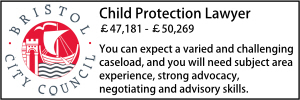People being let down by “poor communication” between councils and NHS, joint Ombudsman report on integrated care finds
- Details
The Local Government and Social Care Ombudsman and the Parliamentary and Health Service Ombudsman have warned that local authorities and the NHS need to work more closely to improve local care, after a joint investigation found evidence of “poor communication” between services.
In a report published yesterday (18 July) ‘People not structures: putting people at the heart of integrated care’, the Ombudsmen noted that Integrated Care Systems (ICSs) are “not doing enough” to put the vulnerable people they support at the heart of what they do.
ICSs were formally established on 1 July 2022 as a result of the Health and Care Act 2022. They are organisations made up of representatives from local authority social services and NHS partnerships that work together to support the needs of people in their areas.
However, complaints investigated jointly by both Ombudsman schemes suggest people are being let down by poor communication between services, the report observed.
It said: “The evidence of our casework shows that a lack of communication between health and social care services is an issue that lies at the heart of many system failures.
“In some cases that lack of communication is life limiting: years of education lost that cannot be recovered, inadequate care in the last days of life and families left in uncertainty at the start of young lives.”
The reported outlined examples of cases where local organisations did not work together effectively.
Cases include a boy with medical and Special Educational Needs who lost six years of education while his parents struggled to look after him because support could not be agreed.
In another case, a family caring for a loved one with progressing dementia were not provided with the proper practical support and advice in the final months of her life. The investigation found that the failure of the council and the NHS Trust to carry out a joint assessment of the woman’s needs meant that she was not considered as a “whole person”.
The report made the following recommendations for improvement:
- agree a ‘person first approach’: where it does not exist, Integrated Care Boards (ICBs), Integrated Care Partnerships (ICPs) and local authorities should design a local approach that brings councils and health services together to look at how a person’s needs can be met first, with considerations of who is responsible and who pays coming an important second. This would create a structured ‘person first’ approach that puts people before organisational structures.
- use the existing tools effectively: councils and NHS bodies must use the tools that exist effectively to support a holistic approach, such as local dispute resolution processes and the National Framework for children and young people’s continuing care. ICPs should monitor how effectively this is being done in their area.
- agree standard frameworks for communication: where they do not already exist, councils and health bodies should put in place person-centred, standard frameworks for effective communication between organisations. These should focus on ensuring the professionals on the ground interact effectively and that discussions and decisions are properly recorded.
Amerdeep Somal, Local Government and Social Care Ombudsman, said: “Local authorities and the NHS need to work as equal partners to put people at the heart of their services on every occasion. However, we are finding cases where disagreements about responsibility and funding are having a significant impact on people’s quality of life.
“When working well, Integrated Care Systems should create real improvements to services, but we are finding children and adults’ health and education compromised because the organisations meant to serve them don’t collaborate effectively.
“Our report provides an opportunity for ICSs to learn from the case studies it contains, and consider the recommendations we set out to improve the way they work together.”
Rebecca Hilsenrath, Parliamentary and Health Service Ombudsman, said: “Individuals and families who draw on health and care services are not aware of organisational boundaries and should not need to be. The NHS and local authorities should already be working together to provide the best possible care for those who need it. But we know that is not always the case and people in vulnerable circumstances are suffering the consequences.
"ICS leaders must implement change and learn from past failings. The recommendations in this report will help leaders scrutinise local practice and ensure the needs of local people are put at the centre of services.”
Earlier this week, a report by the King’s Fund suggested there are clear signs that progress is being made as a result of the establishment of integrated care systems.
However, it added that, despite these signs of progress, some of the more transformative work planned by ICSs is proceeding “at a slower pace than intended as a result of the extremely challenging circumstances in which ICSs have been introduced”.
Lottie Winson






























